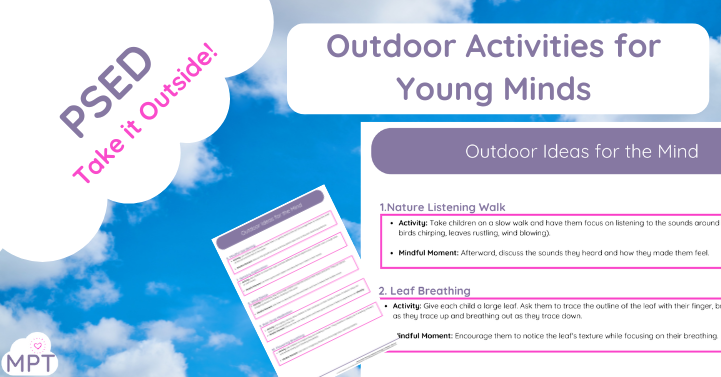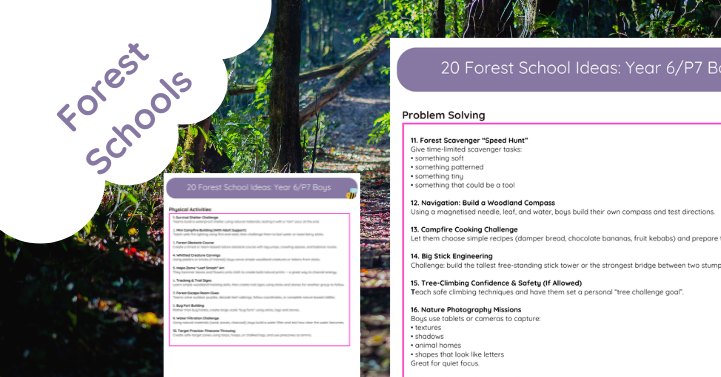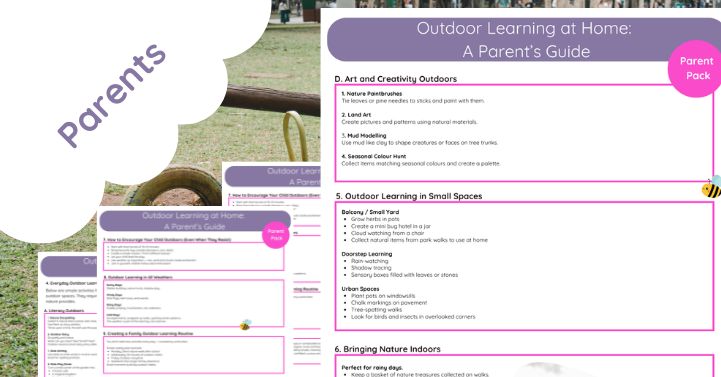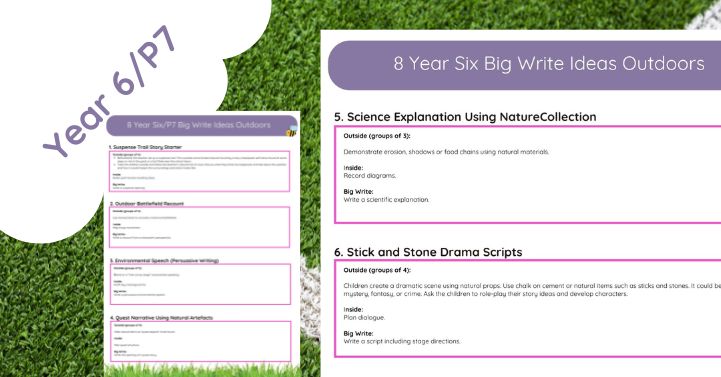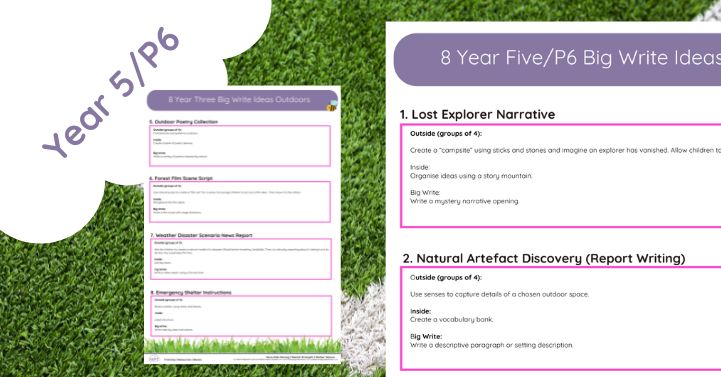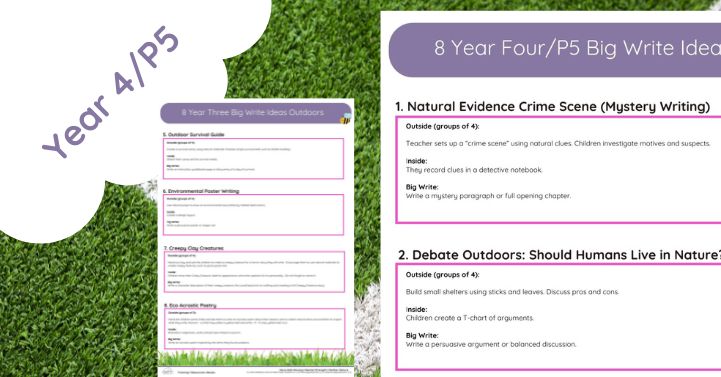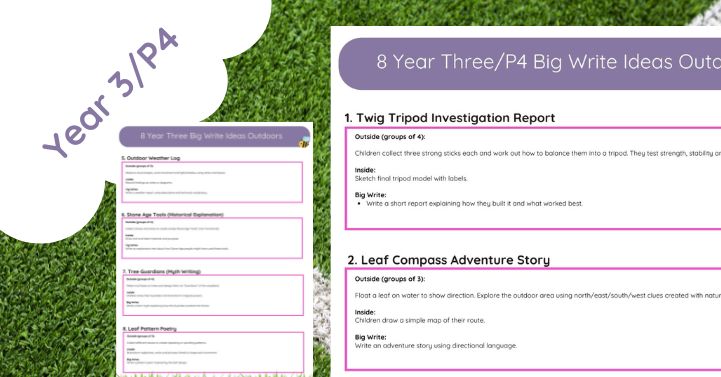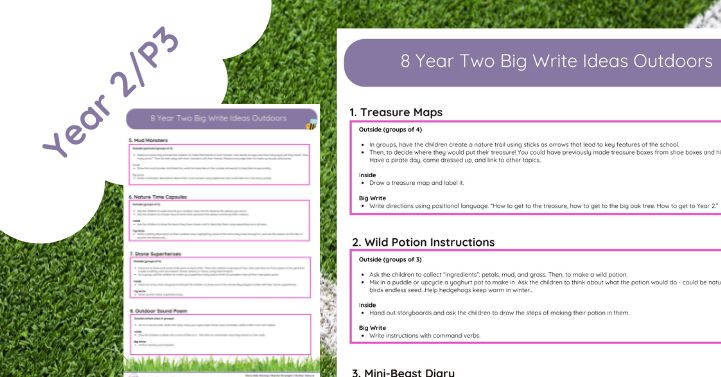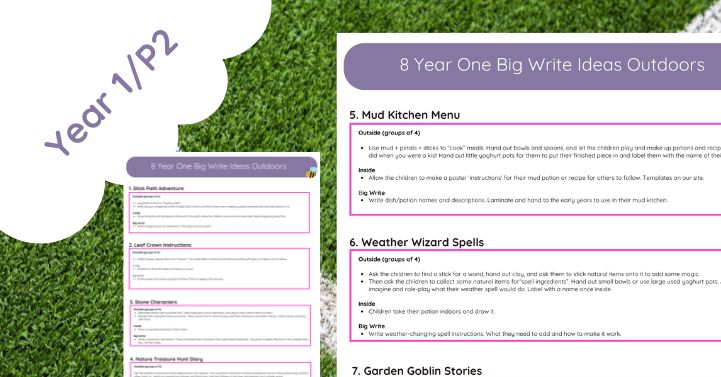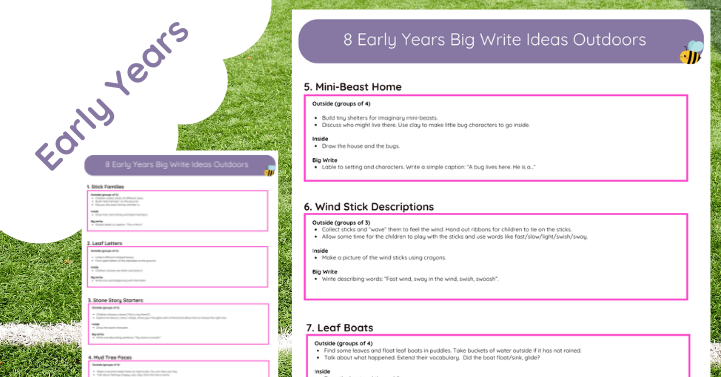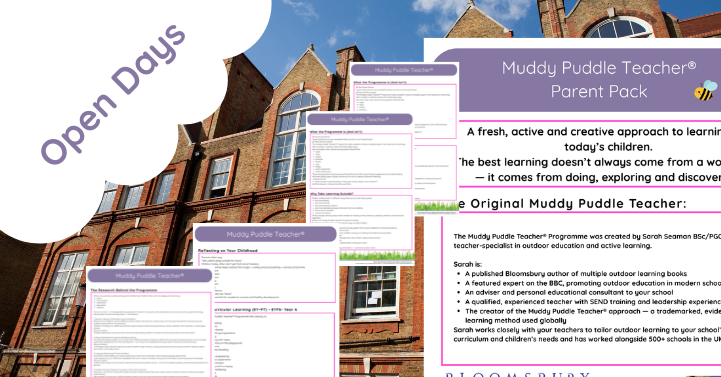Inspire creativity, calm, and curiosity with Outdoor Ideas for Young Minds (Mindful)—a curated collection of engaging activities designed to connect children with nature while promoting mindfulness and well-being. Perfect for early years educators, caregivers, and parents, this guide is packed with hands-on ideas that encourage young learners to slow down, explore, and engage with their surroundings.
From nature listening walks to sensory treasure hunts, each activity is carefully crafted to foster emotional resilience, focus, and a sense of wonder. With simple instructions and adaptable ideas, this resource helps nurture calm and balance in even the busiest young minds, using the natural world as a classroom.
Ideal for outdoor settings, the ideas in this collection are easy to implement and require minimal preparation. Whether you’re looking to integrate mindfulness into your lessons or create peaceful moments during playtime, Outdoor Ideas for Young Minds (Mindful) is your go-to resource for bringing calm and joy to children’s outdoor experiences.
The Importance of Outdoor Activities for Young Minds
Outdoor activities are an essential part of early childhood development. From improving physical health to nurturing creativity, outdoor play provides numerous benefits for young minds. Here’s why incorporating outdoor activities into children’s daily routines is vital, backed by insights from reputable resources.
1. Boosting Physical Health
Outdoor play encourages children to move, run, climb, and jump, which is crucial for developing strong bones, muscles, and motor skills. According to Harvard Health, time spent outdoors also increases vitamin D levels, which support healthy bones and immune function.
2. Encouraging Cognitive Development
Exploring nature stimulates curiosity and problem-solving skills. The Early Years Alliance emphasizes that outdoor activities, such as scavenger hunts or building shelters, challenge young minds and improve their ability to focus and think critically.
3. Supporting Emotional Wellbeing
Spending time outdoors has been proven to reduce stress and anxiety. The Mental Health Foundation highlights that connecting with nature has calming effects and can improve children’s emotional resilience. A simple walk in the park or gardening activity can make a huge difference.
4. Developing Social Skills
Outdoor activities allow children to play and collaborate with peers, fostering teamwork and communication. Pathways.org explains that shared outdoor play helps children practice social skills like sharing, negotiating, and problem-solving in a natural, engaging setting.
5. Enhancing Creativity and Imagination
Nature is the perfect canvas for young minds to create and explore. Activities like making mud pies, building fairy houses, or crafting art with leaves encourage imaginative play. Scholastic states that unstructured outdoor play helps children think creatively and develop unique solutions.
6. Building a Connection to Nature
Outdoor activities foster environmental stewardship by teaching children about plants, animals, and ecosystems. According to The Woodland Trust, engaging with nature at a young age helps children develop a lifelong respect for the environment.
7. Improving Academic Outcomes
Time spent outdoors has been linked to better academic performance. National Geographic reports that outdoor learning environments improve children’s attention spans, memory retention, and enthusiasm for learning.
8. Encouraging Independence
Outdoor activities allow children to take risks, explore, and decide independently. The National Wildlife Federation explains that experiences like climbing trees or navigating trails build confidence and independence in young learners.
9. Providing Sensory Stimulation
Outdoor environments are rich in sensory experiences, from the feel of grass to the sound of birds. BBC Tiny Happy People notes that sensory play outdoors helps young children process their surroundings and enhances their sensory development.
10. Promoting Lifelong Healthy Habits
Outdoor activities instil a love for physical activity and nature that can last a lifetime. According to Outdoor Classroom Day, introducing children to outdoor play early sets the foundation for healthy habits and an active lifestyle.


